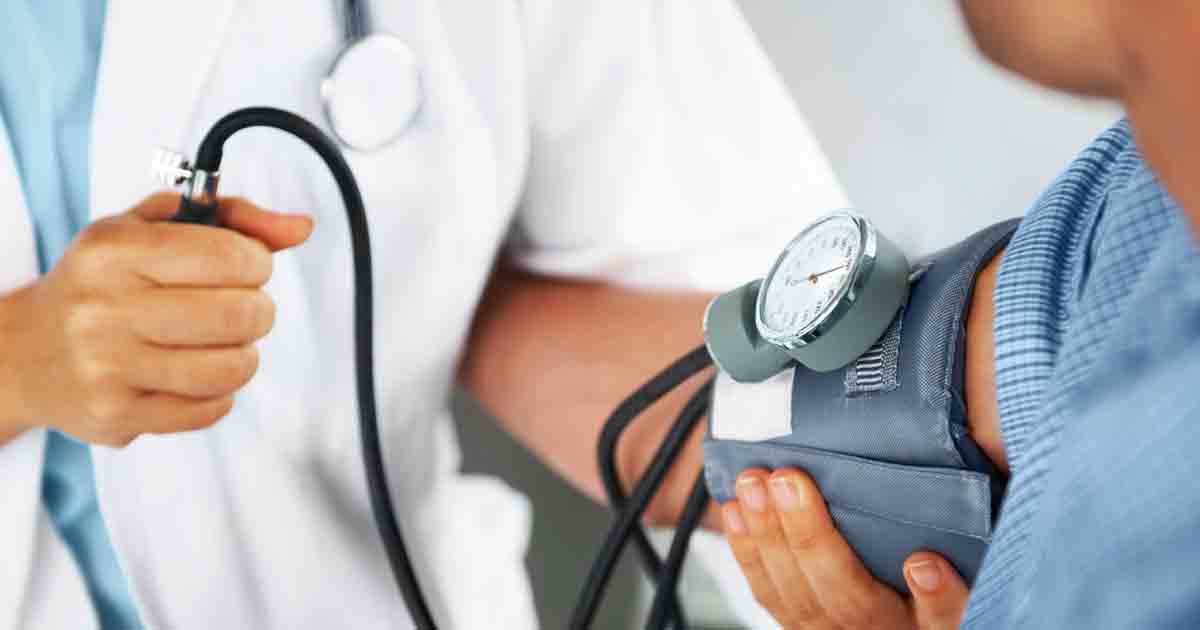Alcoholism
Alcohol Abuse – An Overview
Alcohol abuse often develops gradually, and while some warning signs are easy to recognize, others can be subtle and harder to notice. The severity of abuse can vary from person to person.
In many cases, people may try to hide their drinking habits—by drinking alone, in secrecy, or distancing themselves from family and friends. This makes it challenging for loved ones to step in and offer help.
Even mild alcohol abuse should not be ignored, as what seems minor can quickly progress into a serious problem. Early recognition and treatment make recovery much easier and help individuals return to a healthy, fulfilling life.
Common Symptoms of Alcohol Abuse
-
Temporary blackouts or short-term memory loss
-
Frequent irritability and mood swings
-
Making excuses for drinking (e.g., to relax, reduce stress, or “feel normal”)
-
Choosing alcohol over responsibilities or obligations
-
Withdrawing from friends and family
-
Drinking alone or in secrecy
-
Feeling hungover even when not drinking
-
Changes in appearance and social circles
Spaks Homeopathy Approach
At Spaks Homeopathy, treatment is tailored to the individual. Our focus is on:
Reducing alcohol cravings naturally
Managing withdrawal symptoms safely
Improving mood, energy, and emotional balance
Strengthening overall health and immunity
Supporting long-term recovery without side effects

Cholesterol
Overview – High Cholesterol
Cholesterol is a waxy, fat-like substance found in the blood. While the body needs cholesterol to build healthy cells and produce certain hormones, excess cholesterol is harmful.
When cholesterol levels rise, fatty deposits start accumulating in the walls of arteries. Over time, this leads to narrowing and hardening of arteries (atherosclerosis), restricting blood flow. In severe cases, these deposits can rupture and form blood clots, triggering heart attack, stroke, or other cardiovascular problems.
Symptoms – High Cholesterol
High cholesterol itself often has no direct symptoms and is usually detected through a blood test. But long-term effects can manifest as:
-
Chest pain (Angina) – due to restricted blood flow to the heart.
-
Heart attack – caused by blocked coronary arteries.
-
Stroke – when blood supply to the brain is interrupted.
-
Pain while walking (Claudication) – due to blocked arteries in the legs.
-
Shortness of breath – when heart function is compromised.
Effects if Untreated
-
Atherosclerosis (hardening of arteries)
-
High blood pressure
-
Increased risk of coronary artery disease
-
Heart attack and stroke
-
Peripheral artery disease
-
Reduced life expectancy due to cardiovascular complications
Spaks Homeopathy Treatment
At Spaks Homeopathy, treatment is designed to lower cholesterol naturally, improve blood circulation, and strengthen the heart and arteries.
Commonly Prescribed Medicines (based on individual case history):
-
Crataegus Oxyacantha – Improves heart function and reduces arterial blockage.
-
Baryta Muriaticum – For atherosclerosis and high cholesterol in elderly patients.
-
Allium Sativum (Garlic) – Helps lower cholesterol and prevent clot formation.
-
Aurum Metallicum – For hypertension and heart disease linked with cholesterol.
-
Nux Vomica – For patients with high cholesterol due to rich diet, alcohol, or stress.
-
Lycopodium – For digestive issues and liver dysfunction leading to cholesterol rise.
Why Choose Spaks Homeopathy?
-
Targets root causes such as liver metabolism and lifestyle imbalance.
-
Helps prevent heart attack & stroke risks naturally.
-
No side effects and safe for long-term use.
-
Provides holistic care for heart, liver, and circulation.
-
Customized treatment for each patient’s needs.
Address: E-38, Budh Vihar, Badarpur, New Delhi – 110044
Email: info@spakshomeopathy.com
Phone: +91 8700458818

Depression...
Depression – A Silent Struggle & Homeopathic Healing
Overview
Depression is more than just feeling sad. It is a persistent state of low mood, hopelessness, and lack of interest that can deeply affect one’s daily life, relationships, and overall health.
Unlike temporary sadness, depression drains energy, motivation, and self-confidence, making even small tasks feel overwhelming.
The good news is – with gentle and holistic Homeopathy, true healing is possible.
Causes of Depression
-
Stressful life events (loss, failure, separation, financial burden)
-
Hormonal imbalance (postpartum depression, thyroid issues, menopause)
-
Genetic predisposition
-
Chronic illnesses or long-standing pain
-
Lack of sleep, unhealthy lifestyle
-
Suppressed emotions or past trauma
-
Substance abuse (alcohol, drugs)
Effects if Untreated
-
Persistent sadness and loss of interest
-
Sleep disturbances (insomnia or oversleeping)
-
Physical weakness, fatigue, and headaches
-
Memory loss, poor concentration, low productivity
-
Relationship breakdowns, social withdrawal
-
Risk of addiction (alcohol, drugs)
-
In severe cases → self-harm or suicidal thoughts
Homeopathic Treatment for Depression
Homeopathy works by addressing the root emotional and physical causes, restoring balance, and improving the patient’s overall well-being.
Some commonly indicated medicines (selected after individual case study):
-
Ignatia Amara – For grief, emotional shock, and silent suffering.
-
Natrum Muriaticum – For reserved, sensitive individuals who bottle up emotions.
-
Aurum Metallicum – For deep sadness, hopelessness, and suicidal thoughts.
-
Sepia – For women with hormonal depression, irritability, and indifference.
-
Pulsatilla – For mood swings, weeping tendency, and need for comfort.
-
Arsenicum Album – For anxiety, restlessness, and fear of being alone.
Why Choose Spaks Homeopathy?
-
Root cause approach – Treats mind, body & emotions together.
-
Personalized care – Medicines selected as per your unique nature.
-
Safe & non-addictive – No dependency like antidepressants.
-
Boosts emotional resilience – Helps restore confidence, peace, and joy.
Address: E-38, Budh Vihar, Badarpur, New Delhi – 110044
Email: info@spakshomeopathy.com
Phone: +91 8700458818
At Spaks Homeopathy, we don’t just treat depression, we help you rediscover happiness and inner balance.

Diabetes
Overview
Diabetes is a long-term metabolic disorder in which the body cannot properly use the food you eat for energy. Your cells need glucose (sugar) to function, but in diabetes, this process is disturbed.
When food is digested, it is broken down into glucose, which enters the blood. Normally, the hormone insulin (produced by the pancreas) helps move glucose from the blood into the cells, where it is used for energy.
Without enough insulin, or if the body cannot effectively use insulin, glucose builds up in the blood. This condition is known as high blood sugar (hyperglycemia).
There are three main types of diabetes:
-
Type 1 Diabetes – The pancreas makes little or no insulin.
-
Type 2 Diabetes – The pancreas does not produce enough insulin, or the body cannot use it effectively.
-
Gestational Diabetes – Occurs during pregnancy when the mother cannot make enough insulin for both mother and baby.
Signs of Diabetes
-
Excessive thirst
-
Frequent urination
-
Feeling very tired
-
Constant hunger
-
Blurred vision
-
Slow-healing wounds
-
Weight loss despite eating well
-
Itchy skin
-
Frequent infections (skin, gums, urinary tract)
-
Numbness or tingling in hands and feet
-
Sexual health issues (in men and women)
-
Some people may have no symptoms, even with high blood sugar.
Effects / Complications
If untreated or uncontrolled, diabetes may cause:
-
Heart disease & stroke (due to damaged blood vessels).
-
Kidney damage (Diabetic nephropathy).
-
Eye problems (Diabetic retinopathy, blindness risk).
-
Nerve damage (Diabetic neuropathy) leading to pain, numbness, or loss of sensation.
-
Foot ulcers & infections, sometimes leading to amputation.
-
Gum disease & dental infections.
-
Complications in pregnancy (gestational diabetes can affect mother and baby).
Treatment with Spaks Homeopathy
Homeopathy helps regulate blood sugar naturally, improves insulin efficiency, and prevents complications without side effects.
-
Syzygium Jambolanum – One of the best remedies for controlling blood sugar levels.
-
Phosphoric Acid – For weakness, nerve pain, and mental fatigue due to diabetes.
-
Gymnema Sylvestre (Mother Tincture) – Helps regulate glucose metabolism.
-
Lactic Acid – Useful in diabetes with excessive thirst, hunger, and frequent urination.
-
Phosphorus – For diabetic complications affecting eyes and nerves.
-
Uranium Nitricum – Supports kidney function in diabetic patients.

High blood pressure
Overview
High blood pressure (hypertension) is often called the “silent killer” because it usually has no obvious symptoms in the early stages, yet it can cause serious health problems if left untreated. Many people may have high blood pressure and not even realize it.
If blood pressure remains high for a long time, it gradually damages the blood vessels and vital organs. This can lead to life-threatening complications such as:
-
Heart attack
-
Congestive heart failure
-
Stroke
-
Kidney failure
-
Peripheral artery disease
-
Aneurysms (ballooning of weakened artery walls in the brain, aorta, abdomen, or limbs)
High blood pressure is one of the leading causes of death and disability in India. While tobacco use ranks first as a preventable cause of death, hypertension is the top preventable cause of heart disease and stroke-related deaths.
Symptoms
Although most people don’t notice symptoms, very high or uncontrolled blood pressure may cause:
-
Severe headache
-
Fatigue or confusion
-
Blurred or double vision
-
Chest pain
-
Shortness of breath
-
Irregular heartbeat
-
Blood in the urine
-
Pounding sensation in chest, neck, or ears
Effects of Uncontrolled Hypertension
-
Permanent damage to the heart, kidneys, brain, and arteries
-
Increased risk of stroke and paralysis
-
Progressive loss of kidney function
-
Reduced vision due to hypertensive retinopathy
-
Shortened life expectancy if untreated
Treatment & Management
1. Medical Treatment
-
Antihypertensive medications (as prescribed by doctor) – ACE inhibitors, beta-blockers, diuretics, calcium channel blockers, etc.
-
Regular monitoring of blood pressure to ensure control.
2. Lifestyle Changes
-
Diet: Eat a balanced diet rich in fruits, vegetables, whole grains, and low-fat dairy; reduce salt (sodium) intake.
-
Exercise: At least 30 minutes of moderate activity (walking, cycling, swimming) most days of the week.
-
Weight management: Maintain a healthy body weight.
-
Limit alcohol and avoid smoking.
-
Stress management: Yoga, meditation, and adequate rest can help.
3. Homeopathic Supportive Treatment (under a qualified practitioner)
-
Baryta muriaticum – useful in long-term hypertension, especially in elderly.
-
Belladonna – for sudden rise in blood pressure with headache and flushing.
-
Glonoinum – for high BP with throbbing headache and heat.
-
Nux vomica – in stress-related hypertension with digestive issues.

Low Blood Pressure
Overview
Low blood pressure (hypotension) may seem harmless, and for some people, it causes no problems.
However, in many cases, abnormally low blood pressure can lead to dizziness, fainting, and even life-threatening complications if blood flow to vital organs is reduced.
A blood pressure reading lower than 90/60 mm Hg is generally considered low.
Causes can range from dehydration and nutritional deficiencies to heart problems, endocrine disorders, severe infections, or blood loss. Identifying the cause is essential for proper treatment.
Symptoms
Low blood pressure can signal an underlying problem, especially when it occurs suddenly or is accompanied by symptoms such as:
-
Dizziness or lightheadedness
-
Fainting (syncope)
-
Blurred vision
-
Nausea
-
Fatigue
-
Lack of concentration
Effects
If untreated, persistent or severe hypotension may lead to:
-
Reduced blood flow to the brain → confusion, fainting, risk of falls and injury
-
Shock (life-threatening) in cases of extreme low BP
-
Organ damage due to insufficient oxygen supply
-
Chronic fatigue and weakness affecting quality of life
Treatment
1. Conventional Treatment
-
Increase salt intake (if advised by doctor)
-
Drink more fluids – helps prevent dehydration
-
Compression stockings – improve blood circulation
-
Medications – fludrocortisone or midodrine (for severe cases)
-
Treat underlying causes – such as anemia, thyroid disease, or heart problems
2. Lifestyle Management
-
Eat small, frequent meals to prevent post-meal BP drops
-
Avoid standing up suddenly – move slowly from sitting/lying to standing
-
Limit alcohol intake (it lowers BP further)
-
Maintain a healthy weight and balanced diet
3. Homeopathic Support (Complementary)
Homeopathic remedies may provide relief in mild cases or as supportive care:
-
Carbo vegetabilis – for weakness, faintness, and cold extremities
-
China officinalis (Cinchona) – for low BP after fluid loss (diarrhea, bleeding)
-
Veratrum album – for sudden collapse, cold sweats, extreme weakness
-
Nux vomica – for low BP related to digestive issues or sedentary lifestyle
(Should be used only under professional guidance.)
Key Point: Low blood pressure is not always dangerous, but sudden or symptomatic hypotension requires medical attention to prevent complications.

Obesity
Overview
Obesity is a complex medical disorder characterized by an excessive accumulation of body fat. It is not merely a cosmetic issue but a serious health condition that increases the risk of several chronic diseases, including heart disease, diabetes, high blood pressure, and certain cancers.
Being significantly overweight places extra strain on the body and makes individuals more likely to develop a wide range of health problems related to excess weight.
Symptoms & Health Risks
Obesity can lead to or worsen the following conditions:
-
Breathing disorders such as sleep apnea and chronic obstructive pulmonary disease (COPD)
-
Certain cancers: prostate and colon cancer in men; breast and ovarian cancer in women
-
Depression and mental health issues
-
Type 2 diabetes
-
Gallbladder disease or fatty liver disease
-
Gastroesophageal reflux disease (GERD)
-
High blood pressure (hypertension)
-
High cholesterol levels
-
Joint disease, including osteoarthritis due to extra strain on bones and joints
-
Stroke and cardiovascular disease
Effects
-
Reduced quality of life and mobility
-
Increased risk of early mortality
-
Social and emotional challenges, including low self-esteem and stigma
-
Long-term complications affecting the heart, brain, and metabolic health
Treatment
-
Lifestyle Modifications
-
Healthy, balanced diet with portion control
-
Regular physical activity (at least 150 minutes of moderate exercise weekly)
-
Limiting high-sugar and high-fat foods
-
-
Medical Treatments
-
Prescription medications to support weight loss in selected patients
-
Treatment for related conditions (e.g., diabetes, high BP, cholesterol)
-
-
Surgical Options (for severe cases)
-
Bariatric surgery (gastric bypass, sleeve gastrectomy) may be considered when lifestyle changes are not sufficient and obesity is life-threatening.
-
-
Supportive Measures
-
Behavioral therapy, counseling, or support groups
-
Stress management and improving sleep quality
-
-
Prevention
-
Encouraging healthy eating habits from childhood
-
Maintaining an active lifestyle
-
Regular health checkups to monitor weight and related health markers
-

Tension And Stress
Tension Headache
Overview
A headache is typically a diffuse, mild-to-moderate pain in the head, often described as a tight band around the head.
Tension-type headache is the most common type of headache. Its exact causes are not fully understood but are often linked to:
-
Stress
-
Muscle tension in the neck, scalp, or jaw
-
Fatigue
-
Poor posture
Treatment involves a combination of healthy habits, non-drug approaches, and medications.
Symptoms
-
Dull, aching pain in the head
-
Sensation of tightness or pressure across the forehead, sides, or back of the head
-
Tenderness in scalp, neck, and shoulder muscles
-
Restlessness or difficulty concentrating
-
Irritability or anger
-
Anxiety
-
Reduced physical activity
-
Sadness or depression
Effects / Complications
Untreated or chronic tension headaches can lead to:
-
Reduced productivity at work or school
-
Sleep disturbances
-
Emotional disturbances, such as irritability, anxiety, or depression
-
Chronic pain syndromes in severe cases
Treatment / Management
1. Lifestyle & Self-Care:
-
Practice stress management: meditation, yoga, or deep-breathing exercises
-
Maintain good posture, especially while sitting or working at a desk
-
Get adequate sleep
-
Limit caffeine and alcohol
-
Stay hydrated and maintain balanced nutrition
-
Apply heat or cold packs to tense muscles
2. Medications:
-
Over-the-counter pain relievers: acetaminophen, ibuprofen, or aspirin
-
Muscle relaxants for severe muscle tension
-
Preventive medications in chronic cases may be prescribed by a doctor
3. Non-Drug Therapies:
-
Physical therapy for neck and shoulder muscles
-
Massage therapy
-
Biofeedback or cognitive behavioral therapy (CBT) for stress management
